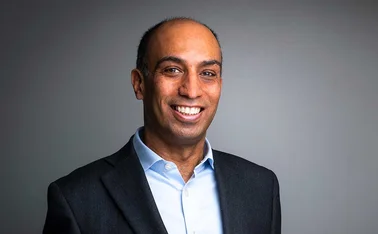
Choosing an insurer: The bigger picture

Price is naturally a factor medium-sized businesses consider when choosing an insurance partner, but it's time they learned that it shouldn't be the most important.
Price will always be an important factor when buying insurance, but if it becomes the most important factor it is time for a major rethink.
This is particularly true for companies in the mid-corporate space for which the right insurance partner can deliver valuable management information, specialist resources and technical expertise that many do not have readily available.
Over and above the breadth of the cover and the premium offered, insurers differentiate themselves in many ways. It may be around their risk management capabilities generally, or the technical support and insight they can share in relation to issues such as health and safety.
Some publicise their claims service, while others promote their links with government and industry bodies.
All four of these areas are important considerations for brokers and their clients when choosing the right insurer partner, and will help determine which offers the best value rather than simply the lowest premium.
Rigorous requirements
Health and safety has become an increasingly important concern for businesses as legislation becomes more stringent and the penalties for breaches more severe. Indeed, three UK companies have now been convicted of corporate manslaughter.
The first challenge that mid-corporates face is getting to grips with the requirements that apply to their operations.
When it comes to risks around work equipment, for example, the legislation creates a number of responsibilities for businesses that can be difficult to understand and onerous to discharge.
General duties for employers are contained in the Health and Safety at Work Act. Thereafter, there are several individual pieces of legislation to understand, including the Provision and Use of Work Equipment Regulations and the Lifting Operations and Lifting Equipment Regulations, to name but two.
Brokers and their clients need an insurer that can guide them through the various pieces of legislation that apply to them. Whether it is by providing training, seminars, practical insight or hands-on advice, there is a lot insurers can do.
Insurers can then add further value by working with customers to develop processes and systems to help clients discharge their responsibilities.
The most effective insurers have dedicated teams of professionals that specialise in understanding the practical implications of the requirements for each different business sector.
For these companies, the question is then whether they are up to speed with the changes to the UK health and safety regime that the government is planning, and how these might affect their business in financial and practical terms from October 2012 and well into the future.
Tailored solutions
General risk management is another area where a lot of insurers, and indeed brokers, have sought to shine in recent years. However, developing an all-encompassing risk management solution that is really tailored to the business's needs is essential.
Put simply, risk management is the process of identifying and managing those things that could prevent an organisation from achieving its objectives, but doing this effectively is a lot more complicated than some brokers and insurers would have businesses believe.
It is not a box-ticking exercise that can be carried out quickly and then forgotten. The implementation of a good risk management strategy is about understanding a business's operations and mitigating the risk they represent. It is certainly not about trying to shoehorn a business into an off-the-shelf solution.
Some insurers have a depth of understanding in the field of risk that they have taken the time to develop into a sophisticated risk management offering.
This allows them to feed their knowledge back to brokers and clients, and offer business-critical data that improves a company's risk profile and its commercial results.
Simply because insurers understand risk does not mean they can all offer good risk management solutions or, indeed, reward their insureds effectively where they implement robust and effective risk management programmes.
Despite the best risk management programmes, losses do happen, and insurers need to step in quickly and provide a response that is professional and effective. This includes providing a strategic claims capability.
Quickly getting people with the right technical skills, equipment and knowledge to the scene of a major loss makes a dramatic difference to the outcome for clients.
Having processes and systems in place to do this effectively is important, as is being able to pinpoint the exact people needed to offer the requisite services in each particular loss.
Dedicated teams of experienced claims specialists located across the UK that can provide cradle-to-grave handling continuity can make a real difference, as can having established, long-standing relationships with suppliers and specialist loss adjusters, as well as solicitors experienced in handling major losses.
Through direct and on-going engagement with the customer, they can provide prompt decision-making, immediate sanction and approval of interim payments, not to mention the scope for accelerated settlements.
Brokers and their clients should investigate how well these insurers could cope with a major flooding incident, for example, or whether they would be able to respond effectively to storms or heavy snowfall.
It is also worth investigating just how well insurers can put their expertise to use when it comes to defending claims made against a business by third parties.
In today's litigious environment, expert help in defending a claim is becoming of everyday importance to mid-corporate firms.
The most effective insurers not only respond to their policyholders' needs but seek to favourably shape the environment in which they operate.
Whether it is attending key insurance summits with senior cabinet ministers, working on detailed policy with government departments or working with industry bodies to develop voluntary codes of practice, insurers involved at this level can offer their policyholders significant benefits.
It gives insurers the opportunity to take part in the debate and effect future changes that might have an impact on their policyholders.
It also gives them an understanding of the direction of travel in terms of public policy, as well as insight into the views of other key stakeholders.
Such participation also allows them to tailor their services to match any changes in the environment their insureds are operating in, helping those businesses stay a step ahead of their competitors.
Clearly, there can be no doubt that insurers differentiate themselves significantly beyond the premium charged for their policies.
According to the Confederation of British Industry: "Medium-sized businesses are the UK's forgotten army - for too long overlooked by government, but with the potential to inject between £20bn and £50bn into the economy by 2020."
Looking to insurance for resources and technical expertise can help these medium-sized businesses realise their full potential and deliver the sort of impact the CBI is talking about.
However, these companies will struggle to get access to business-critical help if they prioritise price over value when it comes to their premiums.
Working in partnership with the right insurer will add real value across all of a mid-sized business's operations.
Dave Carey, head of corporate, Zurich Insurance
Video: A choice based on expertise and value
Is sufficient focus given to the expertise and value provided by an insurer, and does it figure highly enough when the choice of underwriter is made?
This video interview, featuring Post news editor Mairi MacDonald in conversation with Dave Carey, head of corporate for Zurich, looks at whether factors such as claims capability, risk management support and financial strength make a difference to brokers, and whether they are missing a trick with mid-corporate clients if not.
Only users who have a paid subscription or are part of a corporate subscription are able to print or copy content.
To access these options, along with all other subscription benefits, please contact info@insuranceage.co.uk.
You are currently unable to print this content. Please contact info@insuranceage.co.uk to find out more.
You are currently unable to copy this content. Please contact info@insuranceage.co.uk to find out more.
Copyright Infopro Digital Limited. All rights reserved.
As outlined in our terms and conditions, https://www.infopro-digital.com/terms-and-conditions/subscriptions/ (point 2.4), printing is limited to a single copy.
If you would like to purchase additional rights please email info@insuranceage.co.uk
Copyright Infopro Digital Limited. All rights reserved.
You may share this content using our article tools. As outlined in our terms and conditions, https://www.infopro-digital.com/terms-and-conditions/subscriptions/ (clause 2.4), an Authorised User may only make one copy of the materials for their own personal use. You must also comply with the restrictions in clause 2.5.
If you would like to purchase additional rights please email info@insuranceage.co.uk







